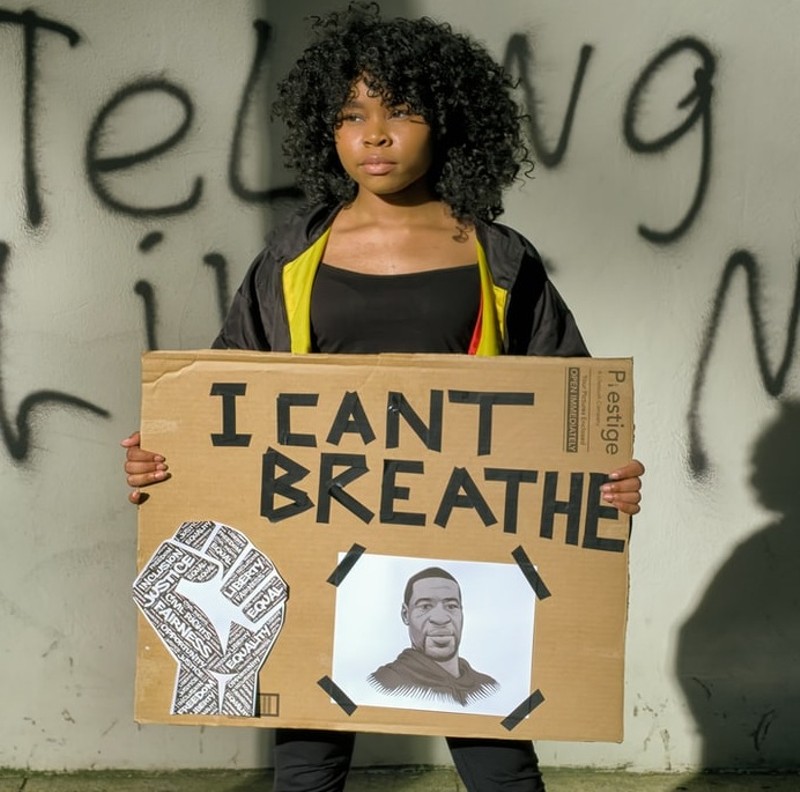The death of George Floyd at the hands of Minneapolis police, and a history of systemic racism, have resulted in mass protests across the globe. While these protests are vital to attract attention, start conversations, and instigate change, it’s also crucial that we strive to understand why this change is necessary in the first place. We must learn, and re-learn, the stories of our past and present. Among the numerous resources at our disposal for this education is a robust collection of films that tackle with unflinching clarity the racial injustice in our country. While there are many period films that depict the subject of slavery in America (Amistad, 12 Years a Slave, Glory) and documentaries that educate us on the history of systemic oppression (13th, Eyes on the Prize) there are other lesser-known gems and (mostly) newer works made by impassioned filmmakers doing their part to shed light on the stories of African Americans and their struggles. Here are films you can watch to gain a better understanding of why America is protesting, and to keep the conversation fervently alive.
Selma (2014)
Amazon Prime, iTunes
Ava Duvernay’s Selma felt essential when it was released in 2014, and as historic protests continue across America, its significance has only grown. The film begins with a KKK bombing that kills four African American children. Shortly after, Annie Lee Cooper is denied voter registration in Selma, Alabama, which sets into motion the 1965 Selma-to-Montgomery marches. Led by Martin Luther King, their purpose was to protest the voting suppression of African Americans, and their success ultimately contributed to the Voting Rights Act of 1965. Selma is a great example of how art can depict the past in order to affect the present. The marches, stunningly recreated by DuVernay and cinematographer Bradford Young, are visceral and inspiring to watch. The film already feels like a classic.
I am Not Your Negro (2016)
Kanopy
This 2016 documentary, based off an unfinished manuscript by James Baldwin, is gently probing in its style, and urgent in its message. Narrated with subdued passion by Samuel L. Jackson, the film explores Baldwin’s impressions of racism in America from personal experiences, encounters with Civil Rights leaders, and popular culture. At one point, footage of Doris Day and Gary Cooper dancing happily is juxtaposed with a clip of Ray Charles singing, the pained lines across his face encapsulating centuries of injustice. The film argues convincingly that America has yet to confront its happy exterior image and the dark truths lurking in its shadows. “Not everything that is faced can be changed,” Baldwin says, “but nothing can be changed until it is faced.”
Do the Right Thing (1989)
Criterion Channel
Spike Lee’s seminal film about racism and police brutality hasn’t aged a day since its release in the summer of 1989. Part of the brilliance of Do the Right Thing is that it understands the power of specificity. Its subject is far-reaching, but its story is small, detail-oriented, and personal. It centers on a handful of characters during a sweltering summer day in Brooklyn. The neighborhood is a melting pot of different ethnic groups and viewpoints, and as the weather heats up, tensions mount, eventually boiling over into a moment of violence and chaos. In the film’s conclusion, Lee invokes the words of Martin Luther King and Malcolm X, who offer differing viewpoints on violent action. But Lee is not out to instruct his viewers. Like all great art, the film leads by example, and allows us to make sense of the events that transpire over the course of the tragic day it depicts.
Just Mercy (2019)
Amazon Prime
This taut legal drama tells the true story of Bryan Stevenson (Michael B. Jordan), a passionate young lawyer who travels to Alabama to help those who cannot afford proper legal representation. He soon encounters Walter McMillian (Jamie Foxx), an African American who’s been convicted of the murder of a young white woman. The story here is fairly straightforward and simple, and the movie makes it clear early on that the Alabama court system convicted McMillian despite stunningly weak testimonies and evidence. It may not be the flashiest courtroom drama, but these smaller stories of racial injustice are crucial. They’re the ones that often slip between the cracks and go unnoticed, and yet, as the film notes at the end, they are everywhere. Note: Warner Brothers has made Just Mercy available to rent for free during the month of June.
Get Out (2017)
Amazon Prime, iTunes
In order to understand the African American experience in America, we often turn to dramas that depict actual historical events. However, we shouldn’t forget that genre films (particularly horror) have also been investigating similar issues for decades. Night of the Living Dead and Candyman are a few classic examples. Today, the works of Jordan Peele continue this tradition of smart, socially conscious genre movies. When Get Out arrived in 2017, it was a jolt of fresh air: here was a darkly funny, entertaining, and at times horrifying portrait of a black man’s experience visiting his white girlfriend’s rich family for the first time. One of the many points in the film is that white wealthy liberals are part of the problem in their passive support of African Americans. In our current climate, when the need for change has taken on new urgency, these types of messages can be vital.
Moonlight (2016)
Netflix
Moonlight, based off a play by Tarrell Alvin McCraney, tells the semi-fictional story of Chiron Harris as he grows up in a poor Miami neighborhood. The triptych structure of Moonlight allows us to see Chiron during separate key stages of his life, played by a different actor in each one. All three sections have their own unique mood and narrative style that, combined, give us a sense of what constitutes a life. Marginalized characters are rarely depicted with such honesty and love. Moonlight is a film with a generosity of spirit that pervades the entire story and whose power reaches well beyond the confines of the screens on which we view it.
Fruitvale Station (2013)
Amazon Prime, iTunes
On New Year’s Day in 2009, Oscar Grant was killed by BART police officers in a senseless act of violence. Ryan Coogler’s debut film Fruitvale Station dramatizes this tragedy. Coogler’s strength is his ability to navigate his way through this tricky territory with hardly any manipulation or false emotion. Shooting with mostly handheld medium shots and closeups, he takes us right into Oscar’s (Michael B. Jordan) final 24 hours and treats it as an ordinary day, with a focus on mundane activities: Oscar takes his daughter to school, fills up the car with gas, and shops for his mom's birthday dinner. The result feels almost like a documentary, like real life unfolding before our eyes. As the details accumulate, our sense of Oscar as a human being grows, and grows, and then the lights go out. The news tells us this heartbreaking story; Coogler’s film lets us live it.
If Beale Street Could Talk (2018)
Hulu
If Beale Street Could Talk exists in a long tradition of stories about how a person’s skin color leads to wrongful imprisonment. I can’t think of any that capture so gracefully and succinctly how this injustice can disrupt not just a family’s way of life, but specifically the love within that family. Set in the 1970s, the film follows Clementine and Fonny, young lovers who are on the verge of starting a family when Fonny is imprisoned for a violent crime. Based off James Baldwin’s novel of the same name, Barry Jenkins’s film is gentle and passionate, angry and sorrowful. It’s a masterclass in the nuance of direction and performance, how attention to detail, color, and music can accentuate a feeling (in this case, the love between humans), and how real-world injustice shatters this beauty.

Audio By Carbonatix
[
{
"name": "Air - MediumRectangle - Inline Content - Mobile Display Size",
"component": "18855504",
"insertPoint": "2",
"requiredCountToDisplay": "2",
"watchElement": ".fdn-content-body",
"astAdList": [
{
"adType": "rectangle",
"displayTargets": "mobile"
}
]
},{
"name": "Editor Picks",
"component": "17105533",
"insertPoint": "4",
"requiredCountToDisplay": "1",
"watchElement": ".fdn-content-body",
"astAdList": [
{
"adType": "rectangleLeft",
"displayTargets": "desktop|tablet"
},{
"adType": "rectangleRight",
"displayTargets": "desktop|tablet|mobile"
}
]
},{
"name": "Inline Links",
"component": "18349797",
"insertPoint": "8th",
"startingPoint": 8,
"requiredCountToDisplay": "7",
"maxInsertions": 25
},{
"name": "Air - MediumRectangle - Combo - Inline Content",
"component": "17105532",
"insertPoint": "8th",
"startingPoint": 8,
"requiredCountToDisplay": "7",
"maxInsertions": 25,
"watchElement": ".fdn-content-body",
"astAdList": [
{
"adType": "rectangleLeft",
"displayTargets": "desktop|tablet"
},{
"adType": "rectangleRight",
"displayTargets": "desktop|tablet|mobile"
}
]
},{
"name": "Inline Links",
"component": "18349797",
"insertPoint": "8th",
"startingPoint": 12,
"requiredCountToDisplay": "11",
"maxInsertions": 25
},{
"name": "Air - Leaderboard Tower - Combo - Inline Content",
"component": "17105535",
"insertPoint": "8th",
"startingPoint": 12,
"requiredCountToDisplay": "11",
"maxInsertions": 25,
"watchElement": ".fdn-content-body",
"astAdList": [
{
"adType": "leaderboardInlineContent",
"displayTargets": "desktop|tablet"
},{
"adType": "tower",
"displayTargets": "mobile"
}
]
}
]











